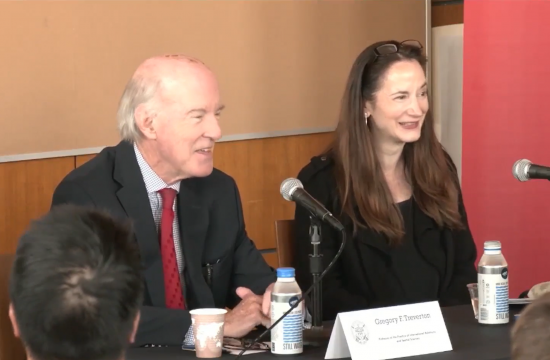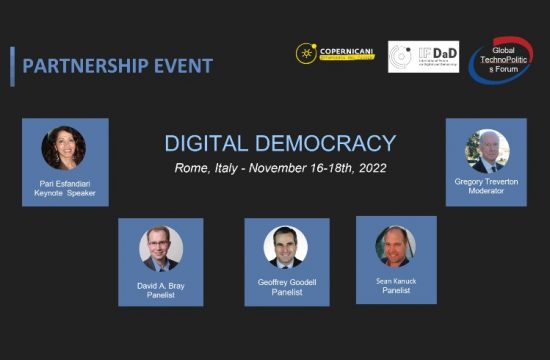By: Gregory F. Treverton, May 2023
I had the great good fortune a few years ago to write a letter of recommendation for Tom. That letter is my text for this tribute. I’m glad I found it because it was written with an edge of advocacy; my prose today about Tom will be tinged with more than a wisp of nostalgia. Tom’s wife Andrea put it far better than I could, and I trust she will forgive me for quoting her: “Your letter of recommendation was better than any admission to any elite organization. And he treasured it. He was proud to be your friend and associate.”
And I was just as proud to be his friend and associate. Tom and I never got to see as much of each other as we would have liked, and that was wonderful in its own way, for it meant that we always wanted more; for too many people one encounters in life, less would be better. I would have loved to teach with him, for instance, but the closest we came was Tom’s cameos on China in my class at the University of Southern California, and those were in the last few years via Zoom. What we did manage was a few martinis at the Marina Yacht Club, which, lacking any other, Tom characteristically had turned into his own Loyola Marymount faculty club.
Tom always thought of himself as a journalist, or that’s what he often said. No knock on journalists, but Tom was that and so much more. For their part, political “scientists” – to use that pretentious descriptor – tend to think of history as great waves driven by the power politics among great powers. Happily, observers like Tom understand that, in the end, it is people who not only ride those waves but also sometimes create them. And so he embarked on his “Giants of Asia series,” beginning with Lee Kuan Yew, who illustrates the power of individuals as well as anyone in our era. Think what Singapore, a city-state with no natural resources, would be like today without him, surely not one of the richest countries in the world. I know of no better book on Lee Kuan Yew than Tom’s.
In addition to insight, Tom brought two other delightful traits to what he would have called journalism, but I would call accessible scholarship or history. He wrote with a light and lively touch, and so his books are very readable, even inviting. Second, he was always on the lookout for upsides, for where things were going well or might. He was no Pollyanna, but his work is a nice antidote to so much of the scaremongering that seeks to grab our eyeballs these days.
Tom had a special ability to escape the usual straitjackets of our debates, and see foreign countries somewhat as they see themselves. On that score, Kishore Mahbubani’s Foreword to Tom’s In the Middle of China’s Future got it just right, “The world’s biggest story is the rise of China. The world’s biggest media is the Western media. The world’s biggest mystery is how the world’s biggest media got the world’s best story wrong. Tom Plate is one of the few Western journalists who have gotten the world’s biggest story right.” George Yeo, the former diplomat, also was right on the money, “Tom Plate is an atypical American commentator of Asian affairs. He was politically incorrect before political incorrectness became fashionable and remains so. He has a sense of China. More importantly, he has what is not in common supply and that is common sense.”
What struck me when I returned to Los Angeles in 2017 from my latest stint in government, as chair of the National Intelligence Council, was his deep commitment to students and to mentoring. His enthusiasm for his subject was contagious, and his students saw it. Every time I met him, usually at the yacht club, he was surrounded by a group of his students. He created Asia Media at Loyola Marymount, where he hung his hat after many years at the Los Angeles Times and UCLA. It was a shoestring operation that laced up a role as a major voice on Asia and its connections to the rest of the world.
My visual memories of Tom always bring a smile to my face. That is because there was always a smile on his face. It is also because he didn’t take himself too seriously, almost always turning up in some zany, slightly comical outfit, always full of self-deprecating humor. In that sense as well as others, he was a mentor to us as well as to his students. We will miss him dearly but remember him mightily. And that, in this life, is as good as it gets.
Gregory Treverton is Tom Plate’s friend, associate and admirer. More prosaically, he is the chair at the Global TechnoPolitics Forum, Professor of the Practice of International Relations and Spatial Sciences at the University of Southern California. He is also a member of the board of the Pacific Century Institute, which Plate served as Vice President.









